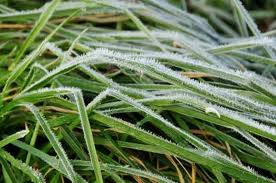We know that the temperatures here in Florida rarely drop below freezing. Regardless, in the unlikely instance that a cold snap hits, it is helpful to be informed on sprinkler irrigation system practices, should the temperatures drop to below freezing.
A good practice is to turn off the sprinkler system when temperatures below freezing are sustained for any prolonged amount of time. Water inside the pipe expands and can bring a lot of damage to your sprinkler system, especially when the pipes cannot accommodate this expansion.
Some of its components would blow apart when the temperature get low enough to invoke freezing. Although irrigation sprinkler system winterization is not necessary in most of Florida, other parts of the country should observe proper winterization to prevent this.
The components of the sprinkler are vulnerable to freezing because of the material with which they are composed, including copper, PVC and Polyvinyl chloride, or polyethylene.
Copper can split open that could leave a crack inches long. PVC pipes have a bit of resistance to freezing, but fittings that hold it in place are very vulnerable to cracking into sharp chunks. Polyethylene pipes or commonly called as poly pipes can accommodate the expansion of freezing water, but the fittings like those in PVC pipes, can break apart.
The backflow prevention device must be protected in dropping temperatures since it is the most vulnerable part when temperatures drop in the winter. The backflow device prevents the contamination of drinking water by preventing the backflow of non-potable water into potable water supply. Damage in any of the valves and other parts which compose this device can cost a good amount of money.
If you have noticed too late that temperatures are dropping, you could still winterize your system since the soil serves as insulation from frost. The first freezing temperatures of winter are not sufficient enough to harm your sprinkler system. However, winterization must be done immediately to protect the components from damage.
Some damage preventative measures include shut off and drain your backflow, and cover the pump with a blanket to protect it from freezing. Check for leaks the first time you use your irrigation system after a freeze since a cold snap could damage pipes. Make sure your rain sensor is working to assure proper watering schedules.
Should you have further questions about sprinkler systems below freezing and winterizing residential or commercial irrigation sprinkler systems in Orlando or Central Florida, call us at 407-302-2227 for a quick reply. Bookmark our blog and website for more news, tips and advice concerning sprinkler irrigation and drainage.

